afterLoad (456.39KB) (432μs)
afterInitialise (1.27MB) (27.09ms)
afterRoute (840.55KB) (12.85ms)
beforeRenderComponent com_tags (21.4KB) (208μs)
afterRenderComponent com_tags (4.19MB) (270ms)
afterDispatch (27.52KB) (2.62ms)
beforeRenderRawModule mod_articles_category (READ MORE...) (423.96KB) (9.8ms)
Before Access::preloadComponents (all components) (50.9KB) (1.91ms)
After Access::preloadComponents (all components) (103.05KB) (590μs)
Before Access::getAssetRules (id:8 name:com_content) (840B) (17μs)
After Access::getAssetRules (id:8 name:com_content) (7.05KB) (57μs)
afterRenderRawModule mod_articles_category (READ MORE...) (7.4KB) (112ms)
beforeRenderRawModule mod_custom (BOOST YOUR IMMUNE DEFENSE) (6.45KB) (29μs)
afterRenderRawModule mod_custom (BOOST YOUR IMMUNE DEFENSE) (3.8KB) (215μs)
beforeRenderRawModule mod_tags_popular (Search) (2.36KB) (16μs)
afterRenderRawModule mod_tags_popular (Search) (44.98KB) (159ms)
beforeRenderRawModule mod_custom (Get additionel and more detailed knowledge ) (816B) (29μs)
afterRenderRawModule mod_custom (Get additionel and more detailed knowledge ) (1.55KB) (54μs)
beforeRenderRawModule mod_custom (Overview of vitamins, minerals, and essential fatty acids) (768B) (11μs)
afterRenderRawModule mod_custom (Overview of vitamins, minerals, and essential fatty acids) (960B) (23μs)
beforeRenderRawModule mod_custom (Q10 goes by many names) (608B) (10μs)
afterRenderRawModule mod_custom (Q10 goes by many names) (928B) (18μs)
beforeRenderRawModule mod_custom (Check this before you buy a Q10 product) (752B) (10μs)
afterRenderRawModule mod_custom (Check this before you buy a Q10 product) (944B) (18μs)
beforeRenderRawModule mod_custom (Are you taking supplements) (736B) (9μs)
afterRenderRawModule mod_custom (Are you taking supplements) (1.03KB) (18μs)
beforeRenderRawModule mod_custom (Weight loss that works) (736B) (8μs)
afterRenderRawModule mod_custom (Weight loss that works) (1.03KB) (17μs)
beforeRenderRawModule mod_custom (Antiaging) (720B) (9μs)
afterRenderRawModule mod_custom (Antiaging) (912B) (17μs)
beforeRenderRawModule mod_menu (Are you getting enough vitamins and minerals?) (2.5KB) (11μs)
afterRenderRawModule mod_menu (Are you getting enough vitamins and minerals?) (22.39KB) (455μs)
beforeRenderRawModule mod_menu (The key to increased well-being) (736B) (19μs)
afterRenderRawModule mod_menu (The key to increased well-being) (17.83KB) (1.25ms)
beforeRenderRawModule mod_menu (Did you know.....) (720B) (19μs)
afterRenderRawModule mod_menu (Did you know.....) (25.52KB) (301μs)
beforeRenderRawModule mod_custom (Useful Links) (1.06KB) (14μs)
afterRenderRawModule mod_custom (Useful Links) (1.02KB) (31μs)
beforeRenderRawModule mod_custom (Chronic fatigue tied Alan to his bed but Q10 capsules saved him:) (244.28KB) (7.07ms)
afterRenderRawModule mod_custom (Chronic fatigue tied Alan to his bed but Q10 capsules saved him:) (1.06KB) (44μs)
beforeRenderModule mod_custom (Chronic fatigue tied Alan to his bed but Q10 capsules saved him:) (768B) (5μs)
afterRenderModule mod_custom (Chronic fatigue tied Alan to his bed but Q10 capsules saved him:) (1.3KB) (56μs)
beforeRenderRawModule mod_custom (Cholesterol-lowering without side effects:) (368B) (13μs)
afterRenderRawModule mod_custom (Cholesterol-lowering without side effects:) (1.06KB) (23μs)
beforeRenderModule mod_custom (Cholesterol-lowering without side effects:) (752B) (2μs)
afterRenderModule mod_custom (Cholesterol-lowering without side effects:) (1.28KB) (30μs)
beforeRenderModule mod_articles_category (READ MORE...) (20.82KB) (337μs)
afterRenderModule mod_articles_category (READ MORE...) (1.25KB) (3.61ms)
beforeRenderModule mod_custom (BOOST YOUR IMMUNE DEFENSE) (6.81KB) (26μs)
afterRenderModule mod_custom (BOOST YOUR IMMUNE DEFENSE) (1.28KB) (38μs)
beforeRenderModule mod_tags_popular (Search) (1.98KB) (13μs)
afterRenderModule mod_tags_popular (Search) (1.27KB) (23μs)
beforeRenderModule mod_custom (Get additionel and more detailed knowledge ) (1.17KB) (11μs)
afterRenderModule mod_custom (Get additionel and more detailed knowledge ) (1.3KB) (21μs)
beforeRenderModule mod_custom (Overview of vitamins, minerals, and essential fatty acids) (384B) (9μs)
afterRenderModule mod_custom (Overview of vitamins, minerals, and essential fatty acids) (1.31KB) (21μs)
beforeRenderModule mod_custom (Q10 goes by many names) (208B) (8μs)
afterRenderModule mod_custom (Q10 goes by many names) (1.27KB) (20μs)
beforeRenderModule mod_custom (Check this before you buy a Q10 product) (352B) (9μs)
afterRenderModule mod_custom (Check this before you buy a Q10 product) (1.28KB) (20μs)
beforeRenderModule mod_custom (Are you taking supplements) (352B) (9μs)
afterRenderModule mod_custom (Are you taking supplements) (1.28KB) (20μs)
beforeRenderModule mod_custom (Weight loss that works) (336B) (9μs)
afterRenderModule mod_custom (Weight loss that works) (1.27KB) (19μs)
beforeRenderModule mod_custom (Antiaging) (336B) (9μs)
afterRenderModule mod_custom (Antiaging) (3.77KB) (20μs)
beforeRenderModule mod_menu (Are you getting enough vitamins and minerals?) (2.13KB) (11μs)
afterRenderModule mod_menu (Are you getting enough vitamins and minerals?) (1.3KB) (20μs)
beforeRenderModule mod_menu (The key to increased well-being) (352B) (9μs)
afterRenderModule mod_menu (The key to increased well-being) (1.28KB) (20μs)
beforeRenderModule mod_menu (Did you know.....) (336B) (10μs)
afterRenderModule mod_menu (Did you know.....) (1.27KB) (19μs)
beforeRenderModule mod_custom (Useful Links) (1.44KB) (8μs)
afterRenderModule mod_custom (Useful Links) (1.27KB) (673μs)
beforeRenderRawModule mod_menu (Main Menu - English) (25.14KB) (2.04ms)
afterRenderRawModule mod_menu (Main Menu - English) (186.95KB) (4.42ms)
beforeRenderModule mod_menu (Main Menu - English) (720B) (5μs)
afterRenderModule mod_menu (Main Menu - English) (4.86KB) (56μs)
beforeRenderRawModule mod_languages (Sprogskift) (3.94KB) (20μs)
afterRenderRawModule mod_languages (Sprogskift) (22.55KB) (3.93ms)
beforeRenderModule mod_languages (Sprogskift) (720B) (6μs)
afterRenderModule mod_languages (Sprogskift) (5.31KB) (22μs)
beforeRenderRawModule mod_finder () (6.34KB) (11μs)
afterRenderRawModule mod_finder () (128.59KB) (2.39ms)
beforeRenderModule mod_finder () (704B) (5μs)
afterRenderModule mod_finder () (3.29KB) (33μs)
beforeRenderRawModule mod_custom () (6.62KB) (141μs)
afterRenderRawModule mod_custom () (22.68KB) (1.77ms)
beforeRenderModule mod_custom () (704B) (6μs)
afterRenderModule mod_custom () (1.23KB) (49μs)
beforeRenderRawModule mod_menu (Main Menu - English) (5.07KB) (103μs)
afterRenderRawModule mod_menu (Main Menu - English) (6.3KB) (759μs)
beforeRenderModule mod_menu (Main Menu - English) (720B) (4μs)
afterRenderModule mod_menu (Main Menu - English) (1.25KB) (45μs)
beforeRenderRawModule mod_languages (Sprogskift Mobil) (912B) (16μs)
afterRenderRawModule mod_languages (Sprogskift Mobil) (3.89KB) (2.67ms)
beforeRenderModule mod_languages (Sprogskift Mobil) (720B) (6μs)
afterRenderModule mod_languages (Sprogskift Mobil) (1.27KB) (36μs)
beforeRenderRawModule mod_finder () (2.3KB) (11μs)
afterRenderRawModule mod_finder () (6.25KB) (537μs)
beforeRenderModule mod_finder () (704B) (4μs)
afterRenderModule mod_finder () (1.23KB) (46μs)
beforeRenderRawModule mod_custom () (8.66KB) (184μs)
afterRenderRawModule mod_custom () (904B) (147μs)
beforeRenderModule mod_custom () (704B) (2μs)
afterRenderModule mod_custom () (2.43KB) (25μs)
beforeRenderRawModule mod_custom () (688B) (87μs)
afterRenderRawModule mod_custom () (896B) (803μs)
beforeRenderModule mod_custom () (704B) (3μs)
afterRenderModule mod_custom () (2.71KB) (27μs)
afterRender (790.53KB) (18.56ms)
| 1 x afterRenderComponent com_tags (4.19MB) (41.51%) | 270.16ms |
| 1 x afterRenderRawModule mod_tags_popular (Search) (44.98KB) (24.43%) | 158.98ms |
| 1 x afterRenderRawModule mod_articles_category (READ MORE...) (7.4KB) (17.17%) | 111.76ms |
| 1 x afterInitialise (1.27MB) (4.16%) | 27.09ms |
| 1 x afterRender (790.53KB) (2.85%) | 18.56ms |
| 1 x afterRoute (840.55KB) (1.97%) | 12.85ms |
| 1 x beforeRenderRawModule mod_articles_category (READ MORE...) (423.96KB) (1.51%) | 9.80ms |
| 1 x beforeRenderRawModule mod_custom (Chronic fatigue tied Alan to his bed but Q10 capsules saved him:) (244.28KB) (1.09%) | 7.07ms |
| 1 x afterRenderRawModule mod_menu (Main Menu - English) (186.95KB) (0.68%) | 4.42ms |
| 1 x afterRenderRawModule mod_languages (Sprogskift) (22.55KB) (0.6%) | 3.93ms |
| 1 x afterRenderModule mod_articles_category (READ MORE...) (1.25KB) (0.55%) | 3.61ms |
| 1 x afterRenderRawModule mod_languages (Sprogskift Mobil) (3.89KB) (0.41%) | 2.67ms |
| 1 x afterDispatch (27.52KB) (0.4%) | 2.62ms |
| 1 x afterRenderRawModule mod_finder () (128.59KB) (0.37%) | 2.39ms |
| 1 x beforeRenderRawModule mod_menu (Main Menu - English) (25.14KB) (0.31%) | 2.04ms |
| 1 x Before Access::preloadComponents (all components) (50.9KB) (0.29%) | 1.91ms |
| 1 x afterRenderRawModule mod_custom () (22.68KB) (0.27%) | 1.77ms |
| 1 x afterRenderRawModule mod_menu (The key to increased well-being) (17.83KB) (0.19%) | 1.25ms |
| 1 x afterRenderRawModule mod_custom () (896B) (0.12%) | 803μs |
| 1 x afterRenderRawModule mod_menu (Main Menu - English) (6.3KB) (0.12%) | 759μs |
| 1 x afterRenderModule mod_custom (Useful Links) (1.27KB) (0.1%) | 673μs |
| 1 x After Access::preloadComponents (all components) (103.05KB) (0.09%) | 590μs |
| 1 x afterRenderRawModule mod_finder () (6.25KB) (0.08%) | 537μs |
| 1 x afterRenderRawModule mod_menu (Are you getting enough vitamins and minerals?) (22.39KB) (0.07%) | 455μs |
| 1 x afterLoad (456.39KB) (0.07%) | 432μs |
| 1 x beforeRenderModule mod_articles_category (READ MORE...) (20.82KB) (0.05%) | 337μs |
| 1 x afterRenderRawModule mod_menu (Did you know.....) (25.52KB) (0.05%) | 301μs |
| 1 x afterRenderRawModule mod_custom (BOOST YOUR IMMUNE DEFENSE) (3.8KB) (0.03%) | 215μs |
| 1 x beforeRenderComponent com_tags (21.4KB) (0.03%) | 208μs |
| 1 x beforeRenderRawModule mod_custom () (8.66KB) (0.03%) | 184μs |
| 1 x afterRenderRawModule mod_custom () (904B) (0.02%) | 147μs |
| 1 x beforeRenderRawModule mod_custom () (6.62KB) (0.02%) | 141μs |
| 1 x beforeRenderRawModule mod_menu (Main Menu - English) (5.07KB) (0.02%) | 103μs |
| 1 x beforeRenderRawModule mod_custom () (688B) (0.01%) | 87μs |
| 1 x After Access::getAssetRules (id:8 name:com_content) (7.05KB) (0.01%) | 57μs |
| 1 x afterRenderModule mod_menu (Main Menu - English) (4.86KB) (0.01%) | 56μs |
| 1 x afterRenderModule mod_custom (Chronic fatigue tied Alan to his bed but Q10 capsules saved him:) (1.3KB) (0.01%) | 56μs |
| 1 x afterRenderRawModule mod_custom (Get additionel and more detailed knowledge ) (1.55KB) (0.01%) | 54μs |
| 1 x afterRenderModule mod_custom () (1.23KB) (0.01%) | 49μs |
| 1 x afterRenderModule mod_finder () (1.23KB) (0.01%) | 46μs |
| 1 x afterRenderModule mod_menu (Main Menu - English) (1.25KB) (0.01%) | 45μs |
| 1 x afterRenderRawModule mod_custom (Chronic fatigue tied Alan to his bed but Q10 capsules saved him:) (1.06KB) (0.01%) | 44μs |
| 1 x afterRenderModule mod_custom (BOOST YOUR IMMUNE DEFENSE) (1.28KB) (0.01%) | 38μs |
| 1 x afterRenderModule mod_languages (Sprogskift Mobil) (1.27KB) (0.01%) | 36μs |
| 1 x afterRenderModule mod_finder () (3.29KB) (0.01%) | 33μs |
| 1 x afterRenderRawModule mod_custom (Useful Links) (1.02KB) (0%) | 31μs |
| 1 x afterRenderModule mod_custom (Cholesterol-lowering without side effects:) (1.28KB) (0%) | 30μs |
| 1 x beforeRenderRawModule mod_custom (BOOST YOUR IMMUNE DEFENSE) (6.45KB) (0%) | 29μs |
| 1 x beforeRenderRawModule mod_custom (Get additionel and more detailed knowledge ) (816B) (0%) | 29μs |
| 1 x afterRenderModule mod_custom () (2.71KB) (0%) | 27μs |
| 1 x beforeRenderModule mod_custom (BOOST YOUR IMMUNE DEFENSE) (6.81KB) (0%) | 26μs |
| 1 x afterRenderModule mod_custom () (2.43KB) (0%) | 25μs |
| 1 x afterRenderRawModule mod_custom (Overview of vitamins, minerals, and essential fatty acids) (960B) (0%) | 23μs |
| 1 x afterRenderRawModule mod_custom (Cholesterol-lowering without side effects:) (1.06KB) (0%) | 23μs |
| 1 x afterRenderModule mod_tags_popular (Search) (1.27KB) (0%) | 23μs |
| 1 x afterRenderModule mod_languages (Sprogskift) (5.31KB) (0%) | 22μs |
| 1 x afterRenderModule mod_custom (Get additionel and more detailed knowledge ) (1.3KB) (0%) | 21μs |
| 1 x afterRenderModule mod_custom (Overview of vitamins, minerals, and essential fatty acids) (1.31KB) (0%) | 21μs |
| 1 x afterRenderModule mod_custom (Q10 goes by many names) (1.27KB) (0%) | 20μs |
| 1 x afterRenderModule mod_custom (Check this before you buy a Q10 product) (1.28KB) (0%) | 20μs |
| 1 x afterRenderModule mod_custom (Are you taking supplements) (1.28KB) (0%) | 20μs |
| 1 x afterRenderModule mod_custom (Antiaging) (3.77KB) (0%) | 20μs |
| 1 x afterRenderModule mod_menu (Are you getting enough vitamins and minerals?) (1.3KB) (0%) | 20μs |
| 1 x afterRenderModule mod_menu (The key to increased well-being) (1.28KB) (0%) | 20μs |
| 1 x beforeRenderRawModule mod_languages (Sprogskift) (3.94KB) (0%) | 20μs |
| 1 x beforeRenderRawModule mod_menu (Did you know.....) (720B) (0%) | 19μs |
| 1 x afterRenderModule mod_custom (Weight loss that works) (1.27KB) (0%) | 19μs |
| 1 x afterRenderModule mod_menu (Did you know.....) (1.27KB) (0%) | 19μs |
| 1 x beforeRenderRawModule mod_menu (The key to increased well-being) (736B) (0%) | 19μs |
| 1 x afterRenderRawModule mod_custom (Q10 goes by many names) (928B) (0%) | 18μs |
| 1 x afterRenderRawModule mod_custom (Check this before you buy a Q10 product) (944B) (0%) | 18μs |
| 1 x afterRenderRawModule mod_custom (Are you taking supplements) (1.03KB) (0%) | 18μs |
| 1 x Before Access::getAssetRules (id:8 name:com_content) (840B) (0%) | 17μs |
| 1 x afterRenderRawModule mod_custom (Weight loss that works) (1.03KB) (0%) | 17μs |
| 1 x afterRenderRawModule mod_custom (Antiaging) (912B) (0%) | 17μs |
| 1 x beforeRenderRawModule mod_tags_popular (Search) (2.36KB) (0%) | 16μs |
| 1 x beforeRenderRawModule mod_languages (Sprogskift Mobil) (912B) (0%) | 16μs |
| 1 x beforeRenderRawModule mod_custom (Useful Links) (1.06KB) (0%) | 14μs |
| 1 x beforeRenderRawModule mod_custom (Cholesterol-lowering without side effects:) (368B) (0%) | 13μs |
| 1 x beforeRenderModule mod_tags_popular (Search) (1.98KB) (0%) | 13μs |
| 1 x beforeRenderModule mod_custom (Get additionel and more detailed knowledge ) (1.17KB) (0%) | 11μs |
| 3 x beforeRenderModule mod_custom () (704B) (0%) | 11μs |
| 1 x beforeRenderRawModule mod_custom (Overview of vitamins, minerals, and essential fatty acids) (768B) (0%) | 11μs |
| 1 x beforeRenderRawModule mod_menu (Are you getting enough vitamins and minerals?) (2.5KB) (0%) | 11μs |
| 1 x beforeRenderModule mod_menu (Are you getting enough vitamins and minerals?) (2.13KB) (0%) | 11μs |
| 1 x beforeRenderRawModule mod_finder () (6.34KB) (0%) | 11μs |
| 1 x beforeRenderRawModule mod_finder () (2.3KB) (0%) | 11μs |
| 1 x beforeRenderRawModule mod_custom (Q10 goes by many names) (608B) (0%) | 10μs |
| 1 x beforeRenderRawModule mod_custom (Check this before you buy a Q10 product) (752B) (0%) | 10μs |
| 1 x beforeRenderModule mod_menu (Did you know.....) (336B) (0%) | 10μs |
| 1 x beforeRenderRawModule mod_custom (Are you taking supplements) (736B) (0%) | 9μs |
| 1 x beforeRenderRawModule mod_custom (Antiaging) (720B) (0%) | 9μs |
| 1 x beforeRenderModule mod_custom (Check this before you buy a Q10 product) (352B) (0%) | 9μs |
| 1 x beforeRenderModule mod_custom (Weight loss that works) (336B) (0%) | 9μs |
| 1 x beforeRenderModule mod_menu (The key to increased well-being) (352B) (0%) | 9μs |
| 2 x beforeRenderModule mod_menu (Main Menu - English) (720B) (0%) | 9μs |
| 2 x beforeRenderModule mod_finder () (704B) (0%) | 9μs |
| 1 x beforeRenderModule mod_custom (Overview of vitamins, minerals, and essential fatty acids) (384B) (0%) | 9μs |
| 1 x beforeRenderModule mod_custom (Are you taking supplements) (352B) (0%) | 9μs |
| 1 x beforeRenderModule mod_custom (Antiaging) (336B) (0%) | 9μs |
| 1 x beforeRenderRawModule mod_custom (Weight loss that works) (736B) (0%) | 8μs |
| 1 x beforeRenderModule mod_custom (Q10 goes by many names) (208B) (0%) | 8μs |
| 1 x beforeRenderModule mod_custom (Useful Links) (1.44KB) (0%) | 8μs |
| 1 x beforeRenderModule mod_languages (Sprogskift) (720B) (0%) | 6μs |
| 1 x beforeRenderModule mod_languages (Sprogskift Mobil) (720B) (0%) | 6μs |
| 1 x beforeRenderModule mod_custom (Chronic fatigue tied Alan to his bed but Q10 capsules saved him:) (768B) (0%) | 5μs |
| 1 x beforeRenderModule mod_custom (Cholesterol-lowering without side effects:) (752B) (0%) | 2μs |
 According to the statistics, far too many patients contract an infection while being hospitalized in a Danish hospital. This has enormous human and economic costs that need to be addressed. Hospital infections are not only a consequence of poor hygiene, it actually turns out that 40 percent of the patients are malnourished to some degree, which impairs their immune system and makes them an easier target for infections. Lack of vitamin C, vitamin D, selenium, zinc, and iron seem to be the big and overlooked problem.
According to the statistics, far too many patients contract an infection while being hospitalized in a Danish hospital. This has enormous human and economic costs that need to be addressed. Hospital infections are not only a consequence of poor hygiene, it actually turns out that 40 percent of the patients are malnourished to some degree, which impairs their immune system and makes them an easier target for infections. Lack of vitamin C, vitamin D, selenium, zinc, and iron seem to be the big and overlooked problem.







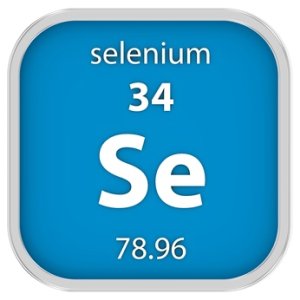 Even if you eat a healthy and balanced diet, it can be difficult to get enough
Even if you eat a healthy and balanced diet, it can be difficult to get enough 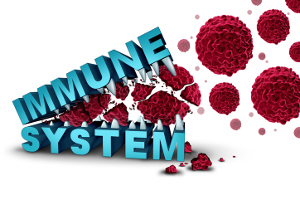 It is not the actual COVID-19 virus that can become lethal. It is the immune system’s overreaction with hyperinflammation and a storm of cytokines that destroys healthy tissue in the lungs, the cardiovascular system, and other places in the body, according to a new article that is published in The Lancet. The capacity of the immune system determines if an infection like COVID-19 is either harmless or life-threatening. For that reason, hygienic measures, masks, isolation, and delayed vaccines are not sufficient. We also need to bolster our immune system against COVID-19 and other pandemics that may occur in the future. Let’s look closer at vitamin C, vitamin D, selenium and zinc, all of which are essential for preventing a well-functioning immune system from going off its rails. What is also worth mentioning is that many people lack these nutrients, especially older people and other exposed groups.
It is not the actual COVID-19 virus that can become lethal. It is the immune system’s overreaction with hyperinflammation and a storm of cytokines that destroys healthy tissue in the lungs, the cardiovascular system, and other places in the body, according to a new article that is published in The Lancet. The capacity of the immune system determines if an infection like COVID-19 is either harmless or life-threatening. For that reason, hygienic measures, masks, isolation, and delayed vaccines are not sufficient. We also need to bolster our immune system against COVID-19 and other pandemics that may occur in the future. Let’s look closer at vitamin C, vitamin D, selenium and zinc, all of which are essential for preventing a well-functioning immune system from going off its rails. What is also worth mentioning is that many people lack these nutrients, especially older people and other exposed groups. It is no coincidence that sclerosis is more prevalent at the northern latitudes. A major factor is lack of
It is no coincidence that sclerosis is more prevalent at the northern latitudes. A major factor is lack of  According to a new study from Johns Hopkins University in the United States,
According to a new study from Johns Hopkins University in the United States, 
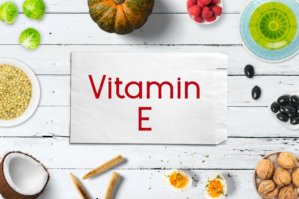
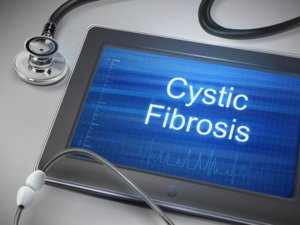 Supplementing with strong antioxidants such as beta-carotene, vitamin E, selenium, and coenzyme Q10 may help patients with cystic fibrosis by reducing a number of the respiratory infections that come with the disease. This was seen in a study by researchers at the Children’s Hospital Colorado and the University of Colorado, United States.
Supplementing with strong antioxidants such as beta-carotene, vitamin E, selenium, and coenzyme Q10 may help patients with cystic fibrosis by reducing a number of the respiratory infections that come with the disease. This was seen in a study by researchers at the Children’s Hospital Colorado and the University of Colorado, United States.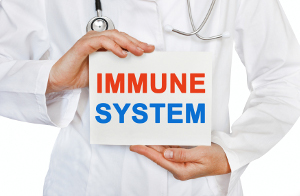 Lack of
Lack of 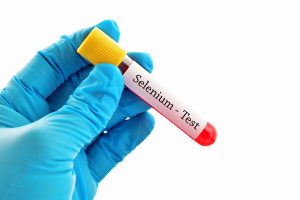 It is estimated that one billion people worldwide lack
It is estimated that one billion people worldwide lack 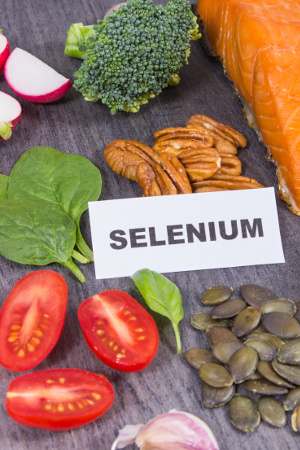

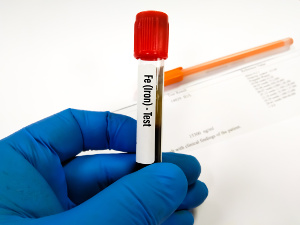 Lack of
Lack of  We all know the importance of eating a healthy diet, exercising, getting sufficient sleep, and sunbathing with caution. Still, life is not always that simple, and even if we stick with the official guidelines for healthy living, it can often be challenging to get adequate amounts of the essential nutrients. Nonetheless, supplements are useful as compensation for these shortcomings. In fact, the use of such products can be compared with plant fertilizers that make plants look healthy, flourish and thrive
We all know the importance of eating a healthy diet, exercising, getting sufficient sleep, and sunbathing with caution. Still, life is not always that simple, and even if we stick with the official guidelines for healthy living, it can often be challenging to get adequate amounts of the essential nutrients. Nonetheless, supplements are useful as compensation for these shortcomings. In fact, the use of such products can be compared with plant fertilizers that make plants look healthy, flourish and thrive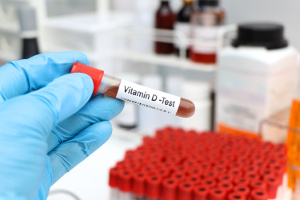 Melanoma is a type of malignant skin cancer that spreads rapidly. Being vitamin D-deficient doubles the risk of dying of the disease, according to a Spanish study that was presented at the European Academy of Dermatology and Venereology congress. It is commonly known that sunburns, which one should generally avoid, increase the risk of contracting skin cancer. But we must not forget that the summer sun is our main source of
Melanoma is a type of malignant skin cancer that spreads rapidly. Being vitamin D-deficient doubles the risk of dying of the disease, according to a Spanish study that was presented at the European Academy of Dermatology and Venereology congress. It is commonly known that sunburns, which one should generally avoid, increase the risk of contracting skin cancer. But we must not forget that the summer sun is our main source of  A new study shows that
A new study shows that  Around 25 percent of adults have had canker sores, also referred to as recurrent aphthous stomatitis (RAS). The condition is characterized by painful, superficial sores, and we don’t know all that much about what causes it or how to treat it. However, according to a meta-analysis that is published in Frontiers in Nutrition, a possible cause may be low blood levels of
Around 25 percent of adults have had canker sores, also referred to as recurrent aphthous stomatitis (RAS). The condition is characterized by painful, superficial sores, and we don’t know all that much about what causes it or how to treat it. However, according to a meta-analysis that is published in Frontiers in Nutrition, a possible cause may be low blood levels of 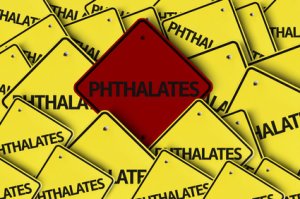 According to a new study, hormone-disrupting substances like bisphenol-A and phthalates can lower levels of
According to a new study, hormone-disrupting substances like bisphenol-A and phthalates can lower levels of 

 According to a new study based on a number of systematic reviews and meta-analyses, the widespread lack of
According to a new study based on a number of systematic reviews and meta-analyses, the widespread lack of 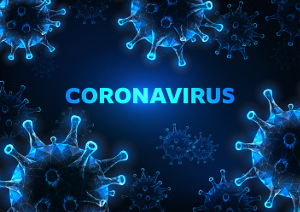 The coronavirus has spread from Wuhan in China to a number of continents, where it has caused massive fear and affected daily life and the global economy. Although most people that get the infection experience a mild course of events, the greatest fear is the potentially life-threatening complications in the respiratory system caused by oxidative stress, which have already taken thousands of human lives. Chinese scientists now call for early intravenous therapy with large doses of vitamin C to prevent oxidative stress and the life-threatening complications that follow in the wake of a derailed immune system. Many researchers also claim that higher intake of vitamin C from dietary sources or supplements help prevent by boosting and regulating the immune system in the upper respiratory tract. The same goes for vitamin D and selenium.
The coronavirus has spread from Wuhan in China to a number of continents, where it has caused massive fear and affected daily life and the global economy. Although most people that get the infection experience a mild course of events, the greatest fear is the potentially life-threatening complications in the respiratory system caused by oxidative stress, which have already taken thousands of human lives. Chinese scientists now call for early intravenous therapy with large doses of vitamin C to prevent oxidative stress and the life-threatening complications that follow in the wake of a derailed immune system. Many researchers also claim that higher intake of vitamin C from dietary sources or supplements help prevent by boosting and regulating the immune system in the upper respiratory tract. The same goes for vitamin D and selenium. When it comes to battling COVID-19, the main focus is on hygiene, face masks, lockdown, and delayed vaccines. For several months, scientists have urged people to take
When it comes to battling COVID-19, the main focus is on hygiene, face masks, lockdown, and delayed vaccines. For several months, scientists have urged people to take 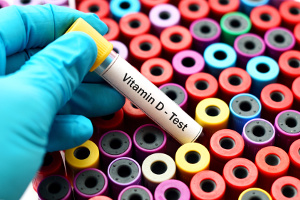 COVID-19 is highly unpredictable and be either totally harmless or life-threatening. Scientists from Oak Ridge National Laboratory in Tennessee recently made a comprehensive genetic analysis that reveals a new hypothesis – the bradykinin hypothesis – which shows why COVID-19 attacks the way it does, why symptoms vary, and why some groups of people are more vulnerable than others. The hypothesis also underpins the importance of getting enough
COVID-19 is highly unpredictable and be either totally harmless or life-threatening. Scientists from Oak Ridge National Laboratory in Tennessee recently made a comprehensive genetic analysis that reveals a new hypothesis – the bradykinin hypothesis – which shows why COVID-19 attacks the way it does, why symptoms vary, and why some groups of people are more vulnerable than others. The hypothesis also underpins the importance of getting enough  It has already been documented that the widespread problems with vitamin D deficiency increase the risk of being infected with COVID-19 and developing life-threatening complications. In a new study, a team of Turkish scientists has demonstrated that swift treatment with
It has already been documented that the widespread problems with vitamin D deficiency increase the risk of being infected with COVID-19 and developing life-threatening complications. In a new study, a team of Turkish scientists has demonstrated that swift treatment with  Several studies have shown that optimizing your blood
Several studies have shown that optimizing your blood 

 The summer sun is our most important source of
The summer sun is our most important source of 
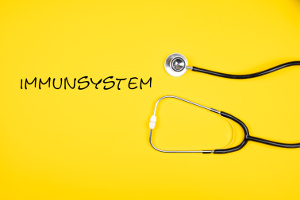 A panel of physicians and professors collaborating with the Swiss Society for Nutrition (SSN) recently reviewed the scientific evidence on the role of micronutrients in supporting a well-functioning immune defense for optimal health with particular focus on viral infections related to COVID-19. They conclude that there is widespread lack of vitamin C, vitamin D, selenium, zinc, and omega-3 fatty acids, all of which are crucial nutrients for the immune system. These deficiencies contribute to new waves of COVID-19 and can cause the infections to become life-threatening. The panel calls for immediate action with relevant focus on diet and supplements.
A panel of physicians and professors collaborating with the Swiss Society for Nutrition (SSN) recently reviewed the scientific evidence on the role of micronutrients in supporting a well-functioning immune defense for optimal health with particular focus on viral infections related to COVID-19. They conclude that there is widespread lack of vitamin C, vitamin D, selenium, zinc, and omega-3 fatty acids, all of which are crucial nutrients for the immune system. These deficiencies contribute to new waves of COVID-19 and can cause the infections to become life-threatening. The panel calls for immediate action with relevant focus on diet and supplements. It is commonly known that vitamin A is good for your vision, but most people are unaware that we also need specific nutrients in order for our hearing to function optimally. In this connection, age-related hearing loss is not necessarily linked to mechanical dysfunctions of the ear but rather to how the brain processes the sound information.
It is commonly known that vitamin A is good for your vision, but most people are unaware that we also need specific nutrients in order for our hearing to function optimally. In this connection, age-related hearing loss is not necessarily linked to mechanical dysfunctions of the ear but rather to how the brain processes the sound information.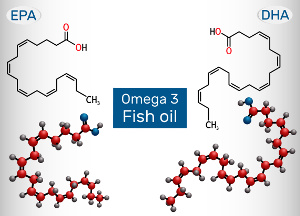 Because COVID-19 mutates from time to time, a vaccine can only provide temporary protection. Also, studies suggest that what makes COVID-19 dangerous is when the immune defense overreacts by launching so-called hyperinflammation that can damage the circulatory system and healthy tissues. The omega-3 fatty acids in fish oil turn out to have the potential to prevent COVID-19 infections from becoming life-threatening due to hyperinflammation. That way, fish oil can also help improve survival, according to a review article that is published in International Journal of General Medicine.
Because COVID-19 mutates from time to time, a vaccine can only provide temporary protection. Also, studies suggest that what makes COVID-19 dangerous is when the immune defense overreacts by launching so-called hyperinflammation that can damage the circulatory system and healthy tissues. The omega-3 fatty acids in fish oil turn out to have the potential to prevent COVID-19 infections from becoming life-threatening due to hyperinflammation. That way, fish oil can also help improve survival, according to a review article that is published in International Journal of General Medicine. Asthma is the leading disease among children and adolescents in the Western world, and the rate has been going up for the past 20 years. A new Danish study that is published in the New England Journal of Medicine shows that pregnant women who take supplements of
Asthma is the leading disease among children and adolescents in the Western world, and the rate has been going up for the past 20 years. A new Danish study that is published in the New England Journal of Medicine shows that pregnant women who take supplements of  Modern man is exposed to a lot of free radicals because of factors like stress, environmental toxins, etc. Free radicals are like “internal terrorists” that contribute to atherosclerosis, diabetes, Alzheimer’s disease, cancer, and a host of other diseases. Our only protection against free radicals are antioxidants from vitamins, minerals, and plant compounds. Antioxidants work in different ways. Being deficient in a single primary antioxidant such as selenium may leave the body vulnerable to oxidative stress and disease. What most people are unaware of is that free radicals are also essential, as they are a part of our energy turnover and immune defense. The question is how do we protect ourselves the best against infections, oxidative stress, and disease? What type of antioxidant do we get from dark chocolate, green tea, coffee and red wine? How does redox therapy with vitamin C in great quantities work on cancer patients? You can read more about these topics in the following.
Modern man is exposed to a lot of free radicals because of factors like stress, environmental toxins, etc. Free radicals are like “internal terrorists” that contribute to atherosclerosis, diabetes, Alzheimer’s disease, cancer, and a host of other diseases. Our only protection against free radicals are antioxidants from vitamins, minerals, and plant compounds. Antioxidants work in different ways. Being deficient in a single primary antioxidant such as selenium may leave the body vulnerable to oxidative stress and disease. What most people are unaware of is that free radicals are also essential, as they are a part of our energy turnover and immune defense. The question is how do we protect ourselves the best against infections, oxidative stress, and disease? What type of antioxidant do we get from dark chocolate, green tea, coffee and red wine? How does redox therapy with vitamin C in great quantities work on cancer patients? You can read more about these topics in the following.
 HIV, the virus that causes AIDS, is potentially life-threatening because it attacks central cells in the immune defense. It has also been documented that HIV patients have an increased risk of lacking
HIV, the virus that causes AIDS, is potentially life-threatening because it attacks central cells in the immune defense. It has also been documented that HIV patients have an increased risk of lacking 
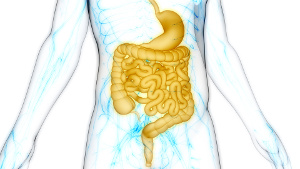
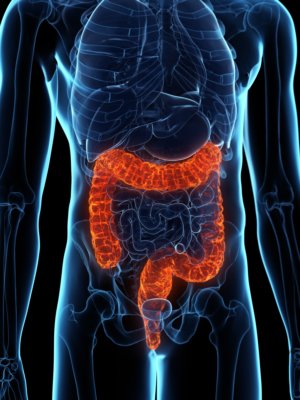 Irritable bowel is the most common intestinal disorder and affects around 15 percent of the population. The symptoms are typically unstable digestion, flatulence, constipation, diarrhea, stomach pain, and intestinal cramps. Several studies have shown that lack of
Irritable bowel is the most common intestinal disorder and affects around 15 percent of the population. The symptoms are typically unstable digestion, flatulence, constipation, diarrhea, stomach pain, and intestinal cramps. Several studies have shown that lack of  Blood poisoning, also called sepsis, is a life-threatening condition that requires immediate medical attention. A combination of high-dosed, intravenously administered
Blood poisoning, also called sepsis, is a life-threatening condition that requires immediate medical attention. A combination of high-dosed, intravenously administered 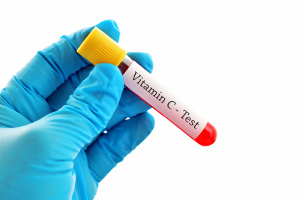 Chronic fatigue commonly follows in the wake of influenza, herpes, COVID-19, and other infections. The immune system does not function optimally, and the tiredness is caused by oxidative stress and inflammation. The condition is often accompanied by poor concentration, depression, and sleep disturbances. Oxidative stress is an imbalance between pro-inflammatory free radicals and protective antioxidants.
Chronic fatigue commonly follows in the wake of influenza, herpes, COVID-19, and other infections. The immune system does not function optimally, and the tiredness is caused by oxidative stress and inflammation. The condition is often accompanied by poor concentration, depression, and sleep disturbances. Oxidative stress is an imbalance between pro-inflammatory free radicals and protective antioxidants.  Minerals are involved in countless functions of vital importance to the immune defense. That is why lack of one or several minerals can increase your risk of infections or perhaps trigger unwanted inflammation that can damage healthy tissue. In a new review article that is published in Nutrients, a group of scientists look at magnesium, selenium, zinc, iron, and copper and their role in the immune system. They also look at the fact that vegans, older people, chronically ill, pregnant women, and elite athletes often have nutrient deficiencies that call for supplementation. The agricultural soil in Europe and many other parts of the world is selenium-depleted, which makes it challenging to get enough selenium from our diets. But it is also important not to overdose on minerals. In this article, you can read more about how to optimize your nutrient intake for your immune health.
Minerals are involved in countless functions of vital importance to the immune defense. That is why lack of one or several minerals can increase your risk of infections or perhaps trigger unwanted inflammation that can damage healthy tissue. In a new review article that is published in Nutrients, a group of scientists look at magnesium, selenium, zinc, iron, and copper and their role in the immune system. They also look at the fact that vegans, older people, chronically ill, pregnant women, and elite athletes often have nutrient deficiencies that call for supplementation. The agricultural soil in Europe and many other parts of the world is selenium-depleted, which makes it challenging to get enough selenium from our diets. But it is also important not to overdose on minerals. In this article, you can read more about how to optimize your nutrient intake for your immune health.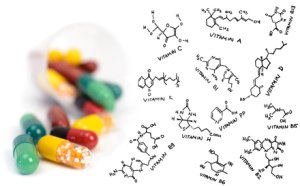 Many people take a multivitamin this time of year. However, even if the manufacturers really squeeze together the ingredients it is impossible to put enough vitamins and minerals in one pill to cover our actual needs. In fact, the manufacturing process determines if we are able to absorb the different nutrients in the first place, and that is important for them to work properly in the body. Therefore, it is vital that you choose a supplement that has good quality, and you must make sure to focus on the vitamins, minerals, and essential fatty acids that we humans typically tend to lack.
Many people take a multivitamin this time of year. However, even if the manufacturers really squeeze together the ingredients it is impossible to put enough vitamins and minerals in one pill to cover our actual needs. In fact, the manufacturing process determines if we are able to absorb the different nutrients in the first place, and that is important for them to work properly in the body. Therefore, it is vital that you choose a supplement that has good quality, and you must make sure to focus on the vitamins, minerals, and essential fatty acids that we humans typically tend to lack. Around one billion people worldwide are believed to lack
Around one billion people worldwide are believed to lack 

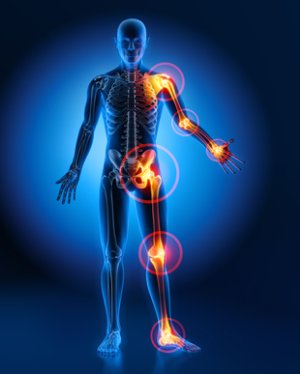 It is hardly a coincidence that many patients with arthritis feel worse during the winter period where the sun sits too low in the sky for us humans to be able to synthesize
It is hardly a coincidence that many patients with arthritis feel worse during the winter period where the sun sits too low in the sky for us humans to be able to synthesize 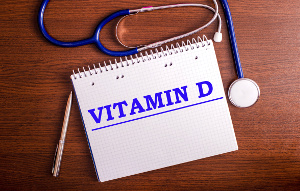
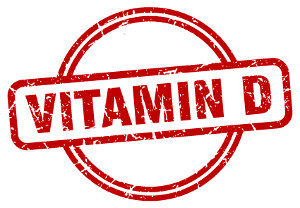 Hashimoto’s disease (Hashimoto’s thyroiditis) is an overlooked scourge that leads to hypothyroidism and is particularly widespread among women. Postpartum thyroiditis that also slows down your metabolism follows in the wake of pregnancy. Graves’ disease where the metabolism speeds up (hyperthyroidism) is less common. These three thyroid disorders belong to the group of autoimmune disorders where the immune defense attacks the body’s tissues, and it appears that lack of
Hashimoto’s disease (Hashimoto’s thyroiditis) is an overlooked scourge that leads to hypothyroidism and is particularly widespread among women. Postpartum thyroiditis that also slows down your metabolism follows in the wake of pregnancy. Graves’ disease where the metabolism speeds up (hyperthyroidism) is less common. These three thyroid disorders belong to the group of autoimmune disorders where the immune defense attacks the body’s tissues, and it appears that lack of  It is hardly a coincidence that sore throats, colds, flus, and related complications such as sinus infections and pneumonia typically circulate during the winter period. They are primarily a result of having low
It is hardly a coincidence that sore throats, colds, flus, and related complications such as sinus infections and pneumonia typically circulate during the winter period. They are primarily a result of having low 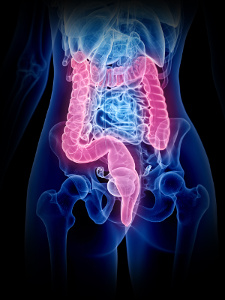 The most common inflammatory bowel diseases are Crohn’s disease and ulcerative colitis. Lack of certain nutrients can contribute to the development of these conditions. On the other hand, the diseases and the therapies used to treat them may also impair the body’s ability to absorb or utilize certain nutrients, thereby starting a vicious cycle that can make the disease worse. This was demonstrated in a new Greek study that is published in Nutrients. Chronic inflammatory bowel diseases primarily occur in the Western countries and especially at northern latitudes, which suggests that sun exposure and typically Western diets pay a major role in the development of these diseases.
The most common inflammatory bowel diseases are Crohn’s disease and ulcerative colitis. Lack of certain nutrients can contribute to the development of these conditions. On the other hand, the diseases and the therapies used to treat them may also impair the body’s ability to absorb or utilize certain nutrients, thereby starting a vicious cycle that can make the disease worse. This was demonstrated in a new Greek study that is published in Nutrients. Chronic inflammatory bowel diseases primarily occur in the Western countries and especially at northern latitudes, which suggests that sun exposure and typically Western diets pay a major role in the development of these diseases. Lactic acid bacteria are many different types of bacteria that produce lactic acid by fermenting carbohydrate. They are widespread in the kingdom of plants and animals. Lactic acid bacteria are also called probiotics which means "pro life" and constitute a vital part of our enormous intestinal microflora that contains more bacteria than body cells and weighs around two kilos.
Lactic acid bacteria are many different types of bacteria that produce lactic acid by fermenting carbohydrate. They are widespread in the kingdom of plants and animals. Lactic acid bacteria are also called probiotics which means "pro life" and constitute a vital part of our enormous intestinal microflora that contains more bacteria than body cells and weighs around two kilos.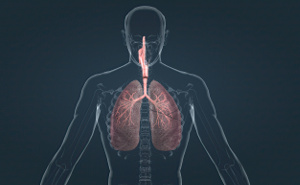
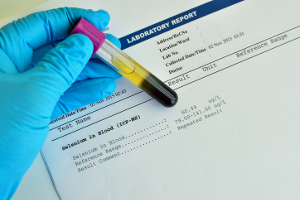 An international science team from the University of Surrey in England has found a link between low
An international science team from the University of Surrey in England has found a link between low 

 Levels of
Levels of 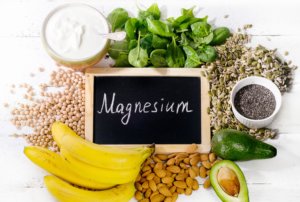 We need plenty of
We need plenty of 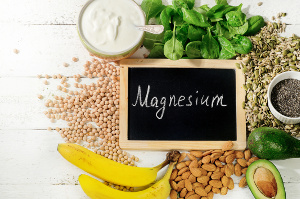 The ageing process and most chronic diseases like diabetes, cardiovascular disease, and cancer involve chronic inflammation that has the potential to damage healthy tissue. If acute hyperinflammation occurs, for example in connection with virus infections like influenza and COVID-19, the condition may become potentially life-threatening. It is therefore vital that the body can control the different inflammatory processes. One of the things that is needed for this is
The ageing process and most chronic diseases like diabetes, cardiovascular disease, and cancer involve chronic inflammation that has the potential to damage healthy tissue. If acute hyperinflammation occurs, for example in connection with virus infections like influenza and COVID-19, the condition may become potentially life-threatening. It is therefore vital that the body can control the different inflammatory processes. One of the things that is needed for this is 
 Groundbreaking research reveals that the human brain is detoxified during our sleep. On the other hand, toxins accumulate in the brain if we suffer from sleep disturbances, increasing our risk of dementia, Alzheimer’s disease, stroke, and numerous other conditions. If you are not helped by the most common guidelines for better sleep, supplementing with the “sleep hormone” melatonin may be an obvious solution that even offers plenty of positive “side effects.”
Groundbreaking research reveals that the human brain is detoxified during our sleep. On the other hand, toxins accumulate in the brain if we suffer from sleep disturbances, increasing our risk of dementia, Alzheimer’s disease, stroke, and numerous other conditions. If you are not helped by the most common guidelines for better sleep, supplementing with the “sleep hormone” melatonin may be an obvious solution that even offers plenty of positive “side effects.” Nowadays, fruit, potatoes, and vegetables in general contain very little
Nowadays, fruit, potatoes, and vegetables in general contain very little  More than 25 percent of people older than 65 years have low levels of vitamin D in their blood. Deficiencies in vitamin B12, folic acid, and iron are also common. This is the conclusion of a large study that was conducted by scientists from Helmholtz Zentrum in Munich, Germany. The widespread lack of vitamins and minerals among older people is critical, especially because this population group is increasing. The lack of essential nutrients affects the calcium uptake, immune defense, and nervous system among other things, leaving older people increasingly vulnerable to osteoporosis, influenza, dementia, and a host of other diseases that impair quality of life and burden the entire public health sector.
More than 25 percent of people older than 65 years have low levels of vitamin D in their blood. Deficiencies in vitamin B12, folic acid, and iron are also common. This is the conclusion of a large study that was conducted by scientists from Helmholtz Zentrum in Munich, Germany. The widespread lack of vitamins and minerals among older people is critical, especially because this population group is increasing. The lack of essential nutrients affects the calcium uptake, immune defense, and nervous system among other things, leaving older people increasingly vulnerable to osteoporosis, influenza, dementia, and a host of other diseases that impair quality of life and burden the entire public health sector. Cancer researchers from the University of Iowa in the United States have finally clarified how extremely high doses of
Cancer researchers from the University of Iowa in the United States have finally clarified how extremely high doses of 

 The winter period is the time of year where we typically lack
The winter period is the time of year where we typically lack  Ageing is characterized by increased physical and mental frailty that reduces one’s ability to deal with various external stress factors.
Ageing is characterized by increased physical and mental frailty that reduces one’s ability to deal with various external stress factors. 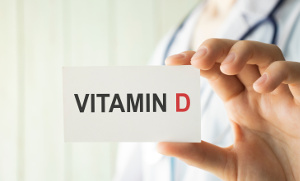 Summer sunlight is vital and is the primary source of
Summer sunlight is vital and is the primary source of  During World War II, food supplies were scarce. At one point, English researchers wanted to find out how little
During World War II, food supplies were scarce. At one point, English researchers wanted to find out how little  Although the course of disease for most people with COVID-19 is rather mild, the greatest concern is the life-threatening complications in the respiratory tract caused by oxidative stress and cytokine storm where the immune system attacks healthy tissue. Scientists are busy looking for new therapies such as intravenous
Although the course of disease for most people with COVID-19 is rather mild, the greatest concern is the life-threatening complications in the respiratory tract caused by oxidative stress and cytokine storm where the immune system attacks healthy tissue. Scientists are busy looking for new therapies such as intravenous 
 New Year’s resolutions are often related to healthier living with better dietary choices, fewer stimulants, and more exercise. We want to stay as young and vital as possible with lots of energy. However, life is not always that simple, and nature often needs a helping hand. The following anti-ageing tips – including the essential beauty sleep – are based on a summary of articles that have all been published previously on this site.
New Year’s resolutions are often related to healthier living with better dietary choices, fewer stimulants, and more exercise. We want to stay as young and vital as possible with lots of energy. However, life is not always that simple, and nature often needs a helping hand. The following anti-ageing tips – including the essential beauty sleep – are based on a summary of articles that have all been published previously on this site. Older people can easily become deficient of vitamins and minerals, which can weaken their immune system and make them more prone to infections and prolonged periods with disease. On the other hand, older people who take a multivitamin and mineral supplement with zinc and large quantities of vitamin C experience fewer days with disease and have less severe symptoms, according to a placebo-controlled study from Oregon State University. But many multivitamin supplements do not contain enough vitamin D and it is very important for older people to get enough of this nutrient.
Older people can easily become deficient of vitamins and minerals, which can weaken their immune system and make them more prone to infections and prolonged periods with disease. On the other hand, older people who take a multivitamin and mineral supplement with zinc and large quantities of vitamin C experience fewer days with disease and have less severe symptoms, according to a placebo-controlled study from Oregon State University. But many multivitamin supplements do not contain enough vitamin D and it is very important for older people to get enough of this nutrient. Omega-3 fatty acids belong to a group of polyunsaturated fatty acids. Their "omega-3" name indicates that they have a double bond at the third carbon atom in the middle carbon chain. Omega-3 fatty acids provide energy and constitute an important element in all cell membranes and various biochemical processes. The type known as ALA (alpha-linoleic acid) is essential, as the human body is unable to produce it. We depend on a dietary supply of this fatty acid. By means of enzymes, ALA is converted to EPA (eicosapentaenoic acid) and DHA (docosahexaenoic acid) and finally into some hormone-like substances named prostaglandins (E3).
Omega-3 fatty acids belong to a group of polyunsaturated fatty acids. Their "omega-3" name indicates that they have a double bond at the third carbon atom in the middle carbon chain. Omega-3 fatty acids provide energy and constitute an important element in all cell membranes and various biochemical processes. The type known as ALA (alpha-linoleic acid) is essential, as the human body is unable to produce it. We depend on a dietary supply of this fatty acid. By means of enzymes, ALA is converted to EPA (eicosapentaenoic acid) and DHA (docosahexaenoic acid) and finally into some hormone-like substances named prostaglandins (E3).


 During spring and summer, many people suffer from allergy symptoms and hay fever because their immune system overreacts to airborne pollen. However, according to a new American study, it is possible that different lactic acid bacteria and bifidobacteria can help alleviate the symptoms. The explanation lies in our intestinal microflora and its importance for a properly functioning immune system.
During spring and summer, many people suffer from allergy symptoms and hay fever because their immune system overreacts to airborne pollen. However, according to a new American study, it is possible that different lactic acid bacteria and bifidobacteria can help alleviate the symptoms. The explanation lies in our intestinal microflora and its importance for a properly functioning immune system.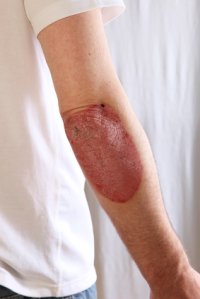 Psoriasis patients are generally interested in their diet and how it affects their disease. So far, there has not been much data so far to support a connection, but a new American study has mapped out the exact effects of regular diet habits and various supplements.
Psoriasis patients are generally interested in their diet and how it affects their disease. So far, there has not been much data so far to support a connection, but a new American study has mapped out the exact effects of regular diet habits and various supplements. Q10 is a lipid-soluble coenzyme that is found in all the body's cells, except for the red blood cells. Carbohydrate, fat, and protein get converted into energy by means of Q10 and the oxygen we breathe. This process takes place inside the small, cellular power stations called mitochondria. To begin with, Q10 contributes to storing the energy in a chemical form called ATP (adenosine triphosphate). After that, Q10 makes sure that the energy is released in step with the shifting energy requirement of the cells.
Q10 is a lipid-soluble coenzyme that is found in all the body's cells, except for the red blood cells. Carbohydrate, fat, and protein get converted into energy by means of Q10 and the oxygen we breathe. This process takes place inside the small, cellular power stations called mitochondria. To begin with, Q10 contributes to storing the energy in a chemical form called ATP (adenosine triphosphate). After that, Q10 makes sure that the energy is released in step with the shifting energy requirement of the cells.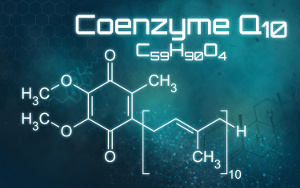 According to WHO, sepsis is the third-most common cause of death, following cardiovascular disease and death. Sepsis is a result of the immune defense overreacting to an infection in the bloodstream. According to a new Slovakian study published in Bratislava Medical Journal, if you start supplementing with
According to WHO, sepsis is the third-most common cause of death, following cardiovascular disease and death. Sepsis is a result of the immune defense overreacting to an infection in the bloodstream. According to a new Slovakian study published in Bratislava Medical Journal, if you start supplementing with 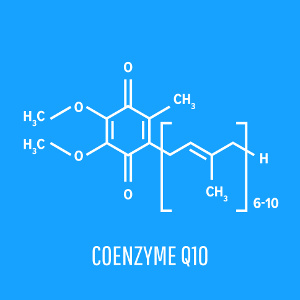
 The immune system needs selenium every single day. Lack of this nutrient increases your risk of virus infections, inflammation, and cancer. It is a huge problem that many of us get too little selenium because of factors such as nutrient-depleted soil and unhealthy eating habits.
The immune system needs selenium every single day. Lack of this nutrient increases your risk of virus infections, inflammation, and cancer. It is a huge problem that many of us get too little selenium because of factors such as nutrient-depleted soil and unhealthy eating habits.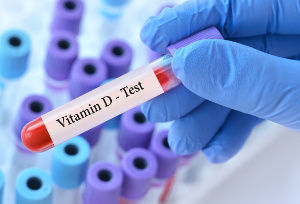
 Schizophrenia, a brain disease, is an extreme burden to the patient as well as to the patient’s family. However, a large meta-analysis published in Psychological Medicine documents that adjuvant therapy with large doses of
Schizophrenia, a brain disease, is an extreme burden to the patient as well as to the patient’s family. However, a large meta-analysis published in Psychological Medicine documents that adjuvant therapy with large doses of  Epidemiological studies have shown that relatively high doses of
Epidemiological studies have shown that relatively high doses of  Selenium is a trace element that is found in all the cells of the body. An adult contains around 10-15 mg of selenium with the largest concentrations being found in the liver, kidneys, thyroid gland, sexual gland (gonads), and semen. Selenium supports over 30 different selenoproteins that have a number of different functions. Among these are five glutathione peroxidases (GSH-Px) that function as antioxidants, and three deiodinases that regulate the metabolism. Of all minerals, selenium is the one that holds the greatest antioxidant potential. It works in close collaboration with vitamin E to prevent oxidative damage to cell membranes, lipids, and DNA. Selenium and sulfur bear great chemical resemblances, but sulfur is not an antioxidant and has other functions in the body.
Selenium is a trace element that is found in all the cells of the body. An adult contains around 10-15 mg of selenium with the largest concentrations being found in the liver, kidneys, thyroid gland, sexual gland (gonads), and semen. Selenium supports over 30 different selenoproteins that have a number of different functions. Among these are five glutathione peroxidases (GSH-Px) that function as antioxidants, and three deiodinases that regulate the metabolism. Of all minerals, selenium is the one that holds the greatest antioxidant potential. It works in close collaboration with vitamin E to prevent oxidative damage to cell membranes, lipids, and DNA. Selenium and sulfur bear great chemical resemblances, but sulfur is not an antioxidant and has other functions in the body. Lack of
Lack of 
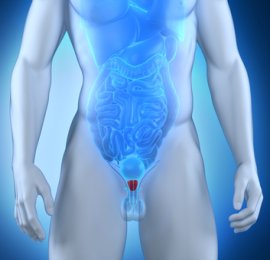 Low selenium status increases a man's risk of prostate cancer and Danish men are particularly susceptible, according to a study published in British Journal of Nutrition. Earlier studies have shown that supplementation with selenium prevents prostate cancer, and selenium yeast has been shown to have the best effect.
Low selenium status increases a man's risk of prostate cancer and Danish men are particularly susceptible, according to a study published in British Journal of Nutrition. Earlier studies have shown that supplementation with selenium prevents prostate cancer, and selenium yeast has been shown to have the best effect. The rate of inflammatory bowel diseases like ulcerous colitis is growing, and diet plays a major role. Even if you eat a healthy diet, it can be a challenge to get enough
The rate of inflammatory bowel diseases like ulcerous colitis is growing, and diet plays a major role. Even if you eat a healthy diet, it can be a challenge to get enough 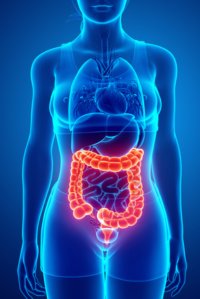 Cancer in the colon and rectum is rather common. One in 20 Danes gets colon cancer at some point in life. Since 2014, the Danish Health Authority has recommended a screening program, offering middle-aged and older people a screening for colon cancer every other year. If the disease is discovered in its early stage, the chances of successful treatment increase. Supplementation with organic selenium yeast has been shown to lower the risk of colorectal cancer in the first place, and selenium even has a protective effect against other cancer forms, so the nutrient is an essential part of the prevention. The problem is that selenium deficiencies are so common as a result of our nutrient-depleted soil.
Cancer in the colon and rectum is rather common. One in 20 Danes gets colon cancer at some point in life. Since 2014, the Danish Health Authority has recommended a screening program, offering middle-aged and older people a screening for colon cancer every other year. If the disease is discovered in its early stage, the chances of successful treatment increase. Supplementation with organic selenium yeast has been shown to lower the risk of colorectal cancer in the first place, and selenium even has a protective effect against other cancer forms, so the nutrient is an essential part of the prevention. The problem is that selenium deficiencies are so common as a result of our nutrient-depleted soil. All our cells contain different
All our cells contain different 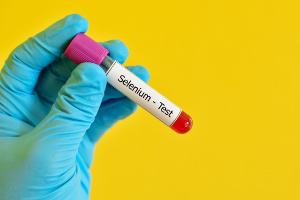 The corona crisis has shed new light on the importance of having a strong immune defense, one that protects us against virus infections in the long run. Selenium plays a vital role for a number of different reasons but, unfortunately, there is widespread deficiency which increases the risk of infections and related complications. In a new review article that is published in International Journal of Molecular Sciences, the authors look closer at selenium’s role in connection with different types of virus infections such as influenza, HIV, and hepatitis with particular focus on COVID-19. The purpose of their article is to inform about new nutritional strategies that may contribute to a strong and well-functioning immune defense – mainly when it comes to COVID-19 and virus types that tend to mutate all the time.
The corona crisis has shed new light on the importance of having a strong immune defense, one that protects us against virus infections in the long run. Selenium plays a vital role for a number of different reasons but, unfortunately, there is widespread deficiency which increases the risk of infections and related complications. In a new review article that is published in International Journal of Molecular Sciences, the authors look closer at selenium’s role in connection with different types of virus infections such as influenza, HIV, and hepatitis with particular focus on COVID-19. The purpose of their article is to inform about new nutritional strategies that may contribute to a strong and well-functioning immune defense – mainly when it comes to COVID-19 and virus types that tend to mutate all the time.
 Our nutritional status is of vital importance to our health and our ability to handle infections.
Our nutritional status is of vital importance to our health and our ability to handle infections. 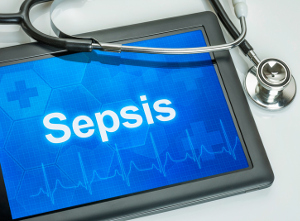
 Many women experience sleep deprivation as one of the biggest problems of menopause. Not only does this condition cause fatigue, it also increases the risk of overweight, depression, impaired immune resistance, weak bones, atherosclerosis, and dementia. It is therefore a very good idea to solve any sleeping problem with the natural substance melatonin and a few other simple adjustments.
Many women experience sleep deprivation as one of the biggest problems of menopause. Not only does this condition cause fatigue, it also increases the risk of overweight, depression, impaired immune resistance, weak bones, atherosclerosis, and dementia. It is therefore a very good idea to solve any sleeping problem with the natural substance melatonin and a few other simple adjustments. "After about one week of taking the Q10 supplement I could feel a huge difference," says 23-year old Alan Piccini, who has been suffering from extreme fatigue and muscle aches ever since he was a child.
"After about one week of taking the Q10 supplement I could feel a huge difference," says 23-year old Alan Piccini, who has been suffering from extreme fatigue and muscle aches ever since he was a child. “Taking capsules with co-enzyme Q10 has freed me of the severe side effects of my cholesterol lowering medicine,” Mrs Franken explains.
“Taking capsules with co-enzyme Q10 has freed me of the severe side effects of my cholesterol lowering medicine,” Mrs Franken explains.